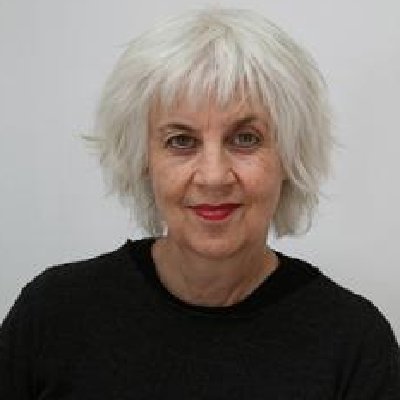Amanda Lohrey wiki, bio, age, author, award, books, husband, twitter
Albeit a chosen one on various events, and the beneficiary of other prominent gongs throughout the long term, for example, the Patrick White prize and the Victorian head's artistic honor, it has taken a lifetime for Lohrey to catch what is seemingly the most renowned prize for Australian composition, with her seventh novel The Labyrinth.
The $60,000 win was declared on Thursday by means of live stream for the second year straight, because of Covid-19 limitations.
Miles Franklin judge and Mitchell Librarian of the State Library of NSW, Richard Neville, depicted The Labyrinth as "an elegiac novel, absorbed pity".
It recounts the tale of a lady who moves to a distant rustic local area to be nearer to her child, who is spending time in jail in prison for destructive carelessness. She comes to know her neighbors, yet not really like them, when she leaves on building a stone maze, trying to sort out the misfortune and disengagement in her life.
"It is a perfectly composed reflection on the contentions among guardians and kids, people, and the worth and reason for inventive work," Neville said.
Addressing Guardian Australia, Lohrey said while she was attracted to political subjects in her prior works of fiction, as she has developed as an essayist she has gotten more fascinated with the interior excursions individuals make in their lives.
"I've considered [The Labyrinth] a peaceful, on the grounds that I needed to investigate the tree change and the ocean change [phenomena] which is really a centuries-old move," she said.
"Individuals have consistently attempted to escape into some sort of primitive scene of provincial excellence, to reestablish some harmed part of themselves."
The way that Lohrey's focal person of Erica Marsden decides to construct a stone maze – rather than a labyrinth – to fix the wrecked piece of herself is huge.
"A labyrinth is a riddle, it's a trial of your keenness, it has a great deal of impasses, you can get lost," she said.
"A maze has one way in and a similar way out. It very well may be an extremely unpredictable way that circles around and takes you some time to get to the middle – and some time to get back out – yet you can't get lost … you will consistently get yourself out."
Watchman book commentator Bec Kavanagh portrays The Labyrinth as a "forcefully tuned novel" and a "rambling story that opposes unbending assumptions".
"The Labyrinth offers a draw towards the obscure and a solace in isolation," Kavanagh wrote in August last year.
"Regardless of now and again shocking dejection, the book is unobtrusively convincing, a painstakingly arranged reflection on the numerous ways that we may follow and change ourselves and our connections."
Lohrey said the novel, distributed by Text Publishing, had been generally welcomed broadly, yet declined to say whether she trusts The Labyrinth is her best work yet.
"I have had a huge measure of positive input, especially from book gatherings and book clubs, they can frequently be exceptionally basic," she said.
"However, my books are largely altogether different, and it's extremely difficult to be level headed about your own work.
"Also, obviously the peruser is the co-maker of the book, they bring half to it. Thus the book is distinctive for every peruser.
"It's interesting when you go to book clubs as a visitor and you hear them quarrel over your book and you believe, 'was that the book I composed?', on the grounds that individuals understanding fiction, it's a profoundly emotional encounter."
Female scholars have overwhelmed the Miles Franklin Literary honor for as far back as decade. Just a single male author, Serbian-conceived A S Patrić [Black Rock White City], has been granted the prize in the previous 10 years – in 2016.
"Amusingly, since the Stella prize [introduced in 2013 to perceive female journalists, and a reaction to the customary male predominance in Australian artistic prizes], a larger number of ladies have won the Miles Franklin than men," said Lohrey.
"I don't figure anybody now in the current environment would try setting up any more sex explicit prizes, we have one, and no more," she said.
"Yet, great on the Stella, prizes should as much as possible. We need every one of the prizes we can get in Australia, it's a little market, and even essayists that are all around evaluated and sell respectably well are as yet not earning enough to pay the bills.
"A dollar prize truly sets you up to compose your next book."
Like most essayists, Lohrey is loth to examine the book she is presently dealing with, in spite of the fact that she is glad to uncover it is as of now half-wrapped up.
"Authors are profoundly eccentric animals, and furthermore what you think the novel is about intermittently [it] ends up being tied in with something different," she said.
"It sort of advances as you come and that is that is its fun, no one can tell where you're going end.
"It's an exceptionally lively exercise, despite the fact that there's a ton of misery en route since, similar to a labyrinth, you can go up your very own great deal impasses, before you get where you need to go."
